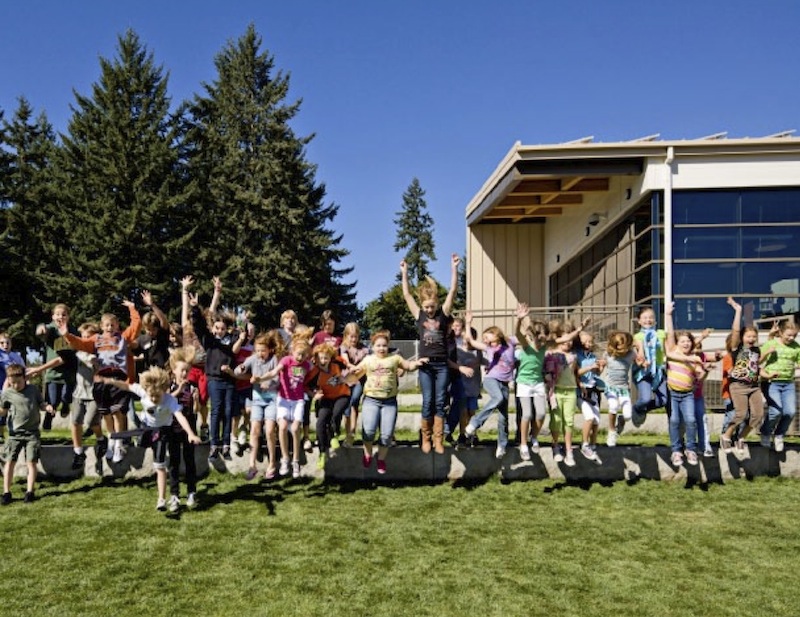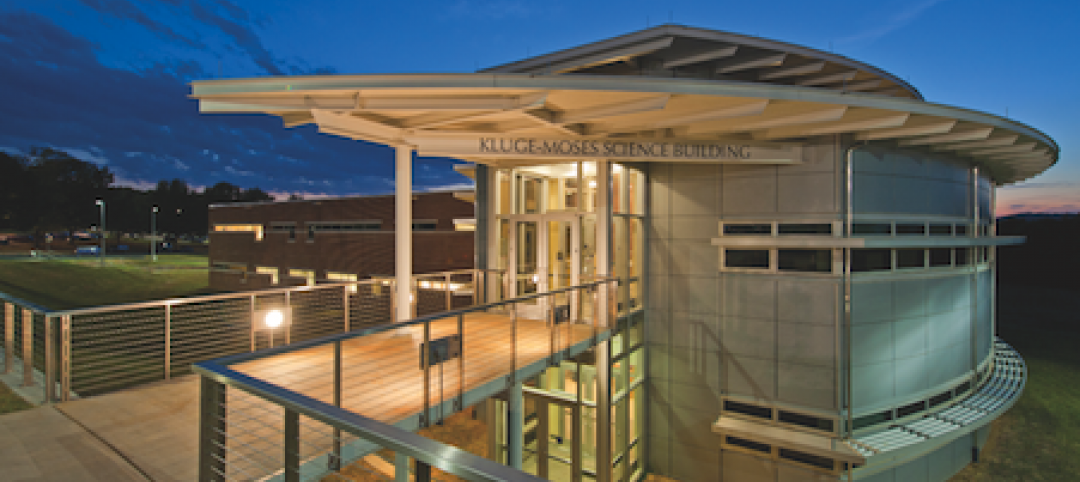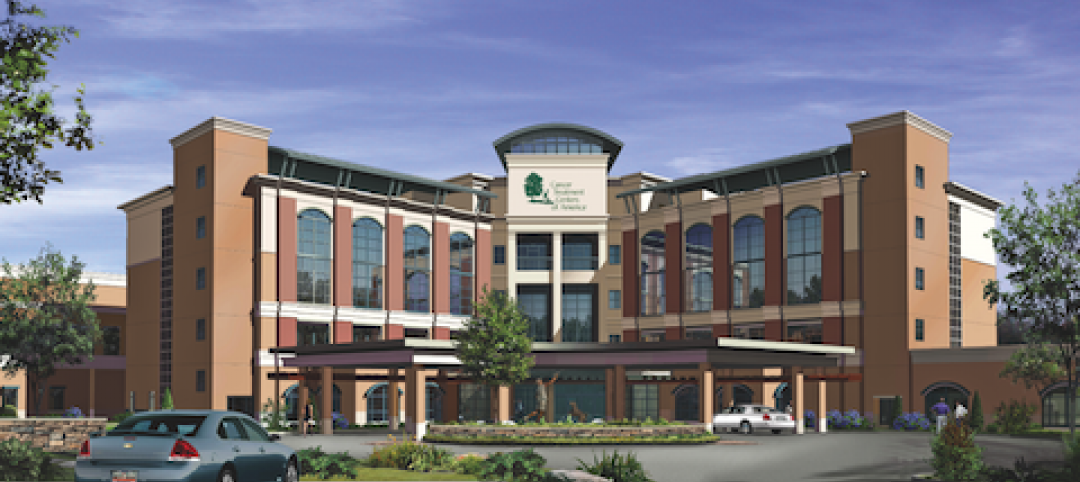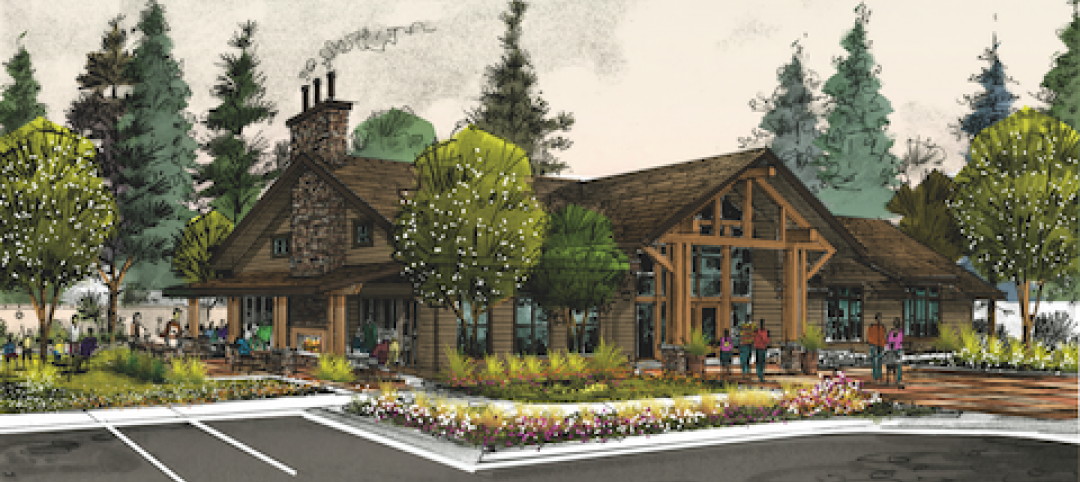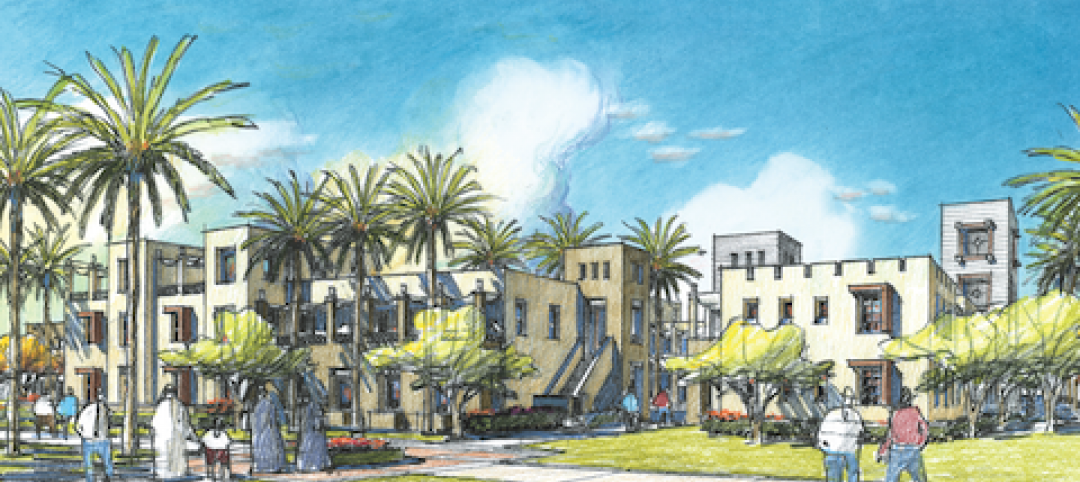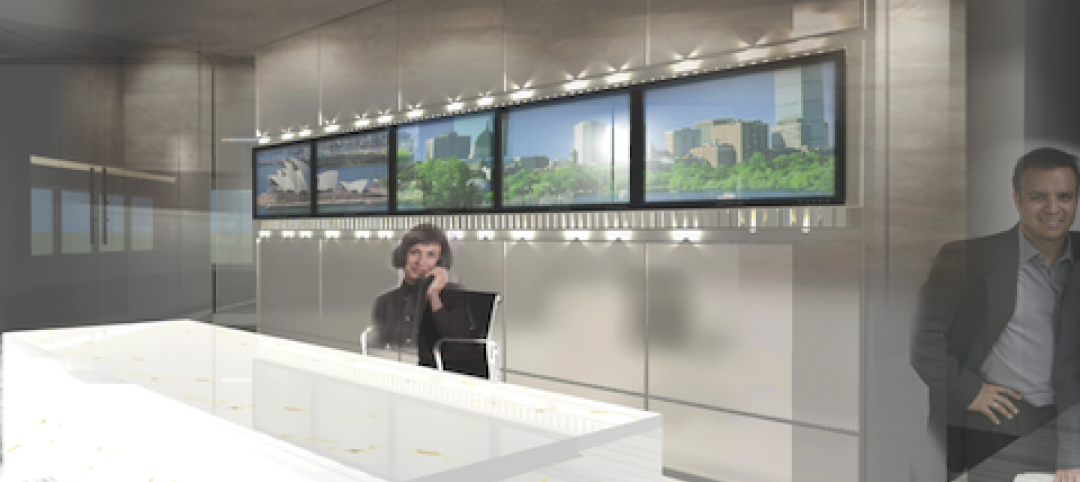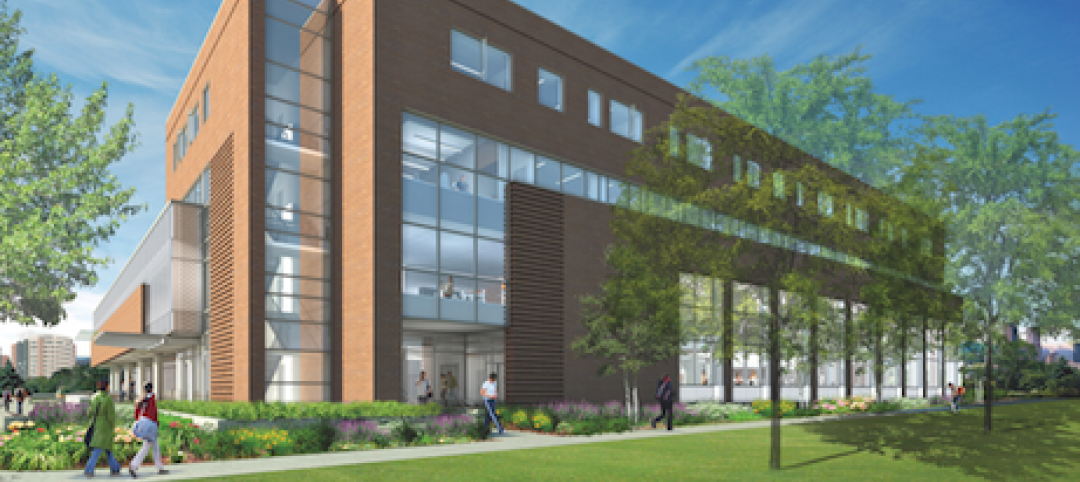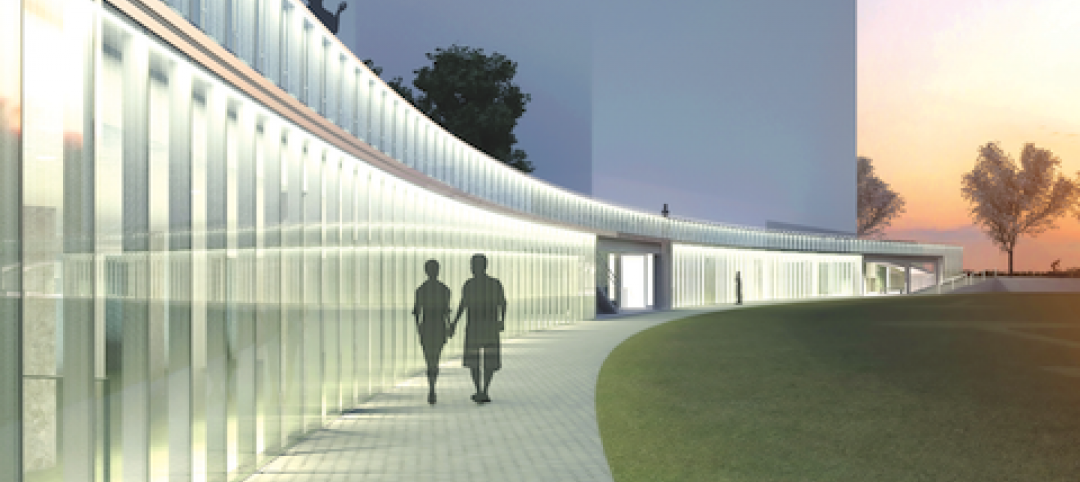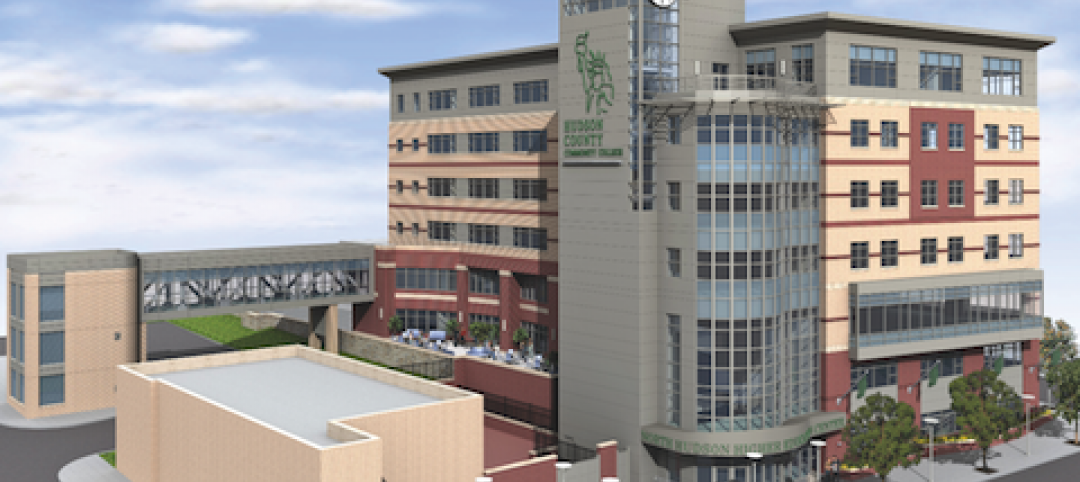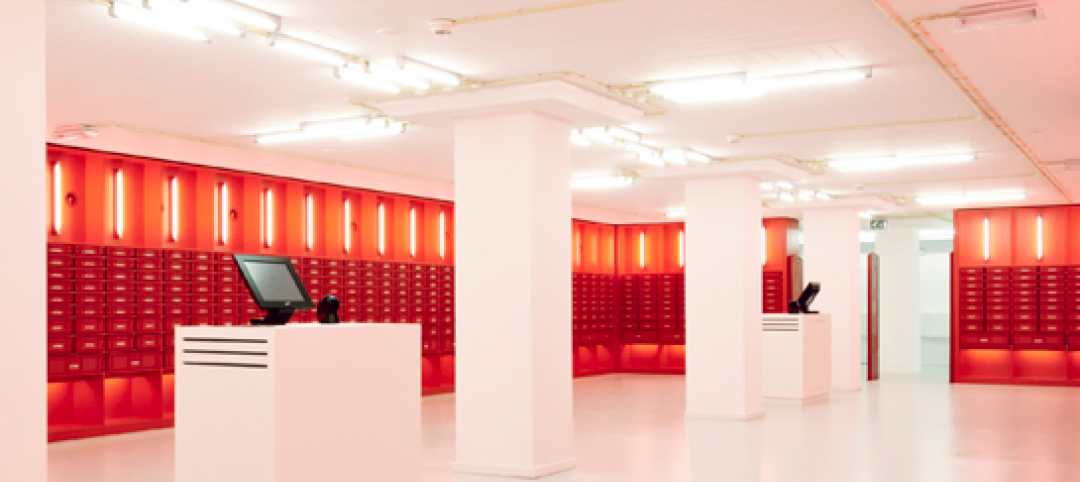DLR Group and the Institute for the Built Environment (IBE) at Colorado State University have collaborated on a research project to evaluate the effect of green school design on occupants and long-term building performance. IBE recently published the research report titled, "Linking Performance & Experience – An Analysis of Green Schools."
The findings show schools designed by DLR Group are more energy efficient, provide more space per student, and are constructed for less cost compared to regional averages for schools constructed during the same year. The overwhelming perception of school staff is that the learning environments within DLR Group green schools have a positive impact on health, achievement, and behavior.
“Design does not stop when the school opens," said DLR Group Senior Principal Jim French, AIA, who leads the firm’s K-12 practice. "The design process must include coming back to a project to measure building performance. If both the tangible metrics of energy efficiency and the intangible metrics of student and occupant satisfaction are not being evaluated, then as design professionals we are not truly meeting the needs of our K-12 clients and the communities they serve.”
The IBE researched 12 schools in eight states offering preschool through 8th grade instruction. IBE evaluated P-8 schools because these facilities offer a more controlled and consistent operational environment for study. For the purposes of the study, the schools in the research sample were third party certified or align with criteria for certification as sustainable buildings, and were in operation for at least 12 months.
The key findings include:
- A motivator to improve student health was only mentioned by a handful of respondents. However, when asked specifically about student health, 87% of respondents reported that they perceived a positive impact on student health, with most respondents specifically describing the positive impact of daylighting.
- 85% of respondents reported that their health and productivity were positively affected by the building.
- 71% of respondents perceived that the building has a positive effect on student achievement
- 71% perceived a positive effect on student behavior. For those that who did not share this perspective, many stated that it is very hard for them to identify the effect because of the many other variables which influence student achievement and behavior.
- Green building practices did not necessarily result in higher first costs. Out of the 10 sites in this sample, six were built for below the regional median cost for schools built in the same year, while four were built for costs greater than the regional median.
- The sample mean Energy Star score was 81, which indicates that the buildings are operating in the top 19th percentile. Nine out of the eleven building evaluated for Energy Star have a score over 75 and would receive the Energy Star award.
- Eight schools are operating at or better than the 2030 Challenge 50% reduction target. In addition, by organizing the schools by the year constructed, it is clear that over time the buildings' design has become increasingly more efficient.
Download the DLR Group/CSU high-performance schools study (PDF).
Related Stories
| Oct 13, 2010
Campus building gives students a taste of the business world
William R. Hough Hall is the new home of the Warrington College of Business Administration at the University of Florida in Gainesville. The $17.6 million, 70,000-sf building gives students access to the latest technology, including a lab that simulates the stock exchange.
| Oct 13, 2010
Science building supports enrollment increases
The new Kluge-Moses Science Building at Piedmont Virginia Community College, in Charlottesville, is part of a campus update designed and managed by the Lukmire Partnership. The 34,000-sf building is designed to be both a focal point of the college and a recruitment mechanism to get more students enrolling in healthcare programs.
| Oct 13, 2010
Cancer hospital plans fifth treatment center
Construction is set to start in December on the new Cancer Treatment Centers of America’s $55 million hospital in Newnan, Ga. The 225,000-sf facility will have 25 universal inpatient beds, two linear accelerator vaults, an HDR/Brachy therapy vault, and a radiology and imaging unit.
| Oct 13, 2010
Apartment complex will offer affordable green housing
Urban Housing Communities, KTGY Group, and the City of Big Bear Lake (Calif.) Improvement Agency are collaborating on The Crossings at Big Bear Lake, the first apartment complex in the city to offer residents affordable, eco-friendly homes. KTGY designed 28 two-bedroom, two-story townhomes and 14 three-bedroom, single-story flats, averaging 1,100 sf each.
| Oct 13, 2010
Residences bring students, faculty together in the Middle East
A new residence complex is in design for United Arab Emirates University in Al Ain, UAE, near Abu Dhabi. Plans for the 120-acre mixed-use development include 710 clustered townhomes and apartments for students and faculty and common areas for community activities.
| Oct 13, 2010
HQ renovations aim for modern look
Gerner Kronick + Valcarcel Architects’ renovations to the Commonwealth Bank of Australia’s New York City headquarters will feature a reworked reception lobby with back-painted glass, silk-screened logos, and a video wall.
| Oct 13, 2010
New health center to focus on education and awareness
Construction is getting pumped up at the new Anschutz Health and Wellness Center at the University of Colorado, Denver. The four-story, 94,000-sf building will focus on healthy lifestyles and disease prevention.
| Oct 13, 2010
Community center under way in NYC seeks LEED Platinum
A curving, 550-foot-long glass arcade dubbed the “Wall of Light” is the standout architectural and sustainable feature of the Battery Park City Community Center, a 60,000-sf complex located in a two-tower residential Lower Manhattan complex. Hanrahan Meyers Architects designed the glass arcade to act as a passive energy system, bringing natural light into all interior spaces.
| Oct 13, 2010
Community college plans new campus building
Construction is moving along on Hudson County Community College’s North Hudson Campus Center in Union City, N.J. The seven-story, 92,000-sf building will be the first higher education facility in the city.
| Oct 13, 2010
Bookworms in Silver Spring getting new library
The residents of Silver Spring, Md., will soon have a new 112,000-sf library. The project is aiming for LEED Silver certification.


